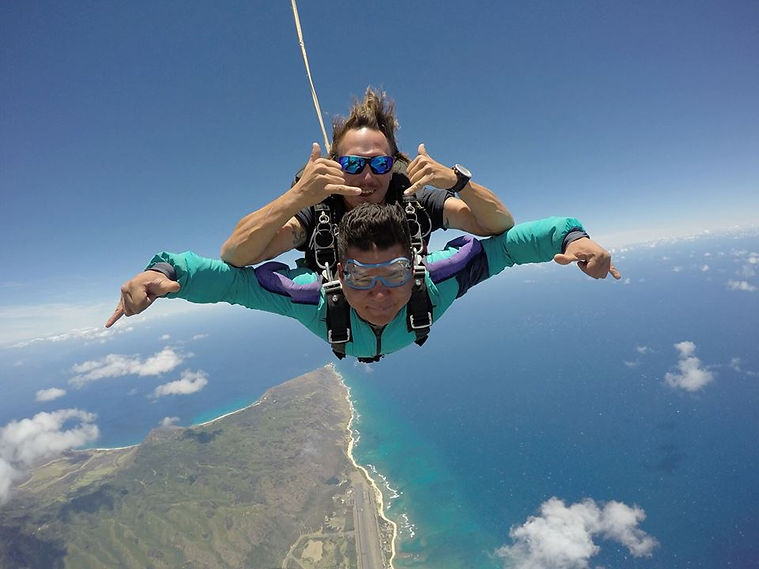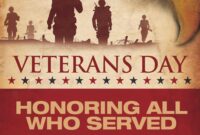Veterans Vacations offer a vital opportunity for those who have served our country to experience well-deserved rest and rejuvenation. Understanding the unique needs of veterans, from physical limitations and PTSD to financial considerations, is paramount in designing truly restorative and fulfilling travel experiences. This exploration delves into the various types of vacations suited to veterans, the resources available to support their journeys, and effective marketing strategies to reach this deserving community.
We will examine how tailored travel options, such as adventure trips, relaxing retreats, or historical site visits, can contribute to improved mental and physical well-being. Furthermore, we’ll highlight the importance of accessibility, affordability, and the emotional connection veterans have to travel, showcasing how vacations can provide both respite and meaningful engagement.
Types of Veterans Vacations
Choosing the right vacation is crucial for veterans seeking rest, rejuvenation, and camaraderie. The ideal trip depends on individual preferences, physical capabilities, and desired level of activity. A variety of options exist to cater to diverse needs and interests, ensuring a fulfilling and memorable experience.
Categories of Veterans Vacations
Veterans’ vacations can be broadly categorized to encompass a range of experiences. These categories offer diverse opportunities for relaxation, adventure, historical reflection, and social interaction. The choice depends on personal preferences and the desired level of activity.
- Adventure Travel: This category includes activities like hiking, kayaking, white-water rafting, and zip-lining. Destinations could include national parks like Yosemite or the Grand Canyon, offering stunning scenery and challenging activities. These trips foster a sense of accomplishment and camaraderie.
- Relaxing Retreats: These vacations prioritize rest and rejuvenation. They often involve spa treatments, quiet time in nature, and opportunities for reflection. Destinations might include beach resorts, mountain cabins, or wellness centers offering tailored programs for veterans.
- Historical Site Visits: Many veterans find fulfillment in visiting historically significant locations, museums, or memorials. Trips could focus on specific historical periods or conflicts, offering opportunities for learning and reflection. Examples include visits to battlefields, historical landmarks, or museums dedicated to military history.
- Group Tours: Organized group tours offer a structured and supportive environment for veterans to travel together. These trips often include guided excursions, transportation, and opportunities for social interaction with fellow veterans. Destinations can be tailored to various interests, from historical sites to national parks.
Accessible Travel Destinations and Accommodations
Accessibility is a paramount concern for veterans with disabilities. Many destinations and accommodations offer features designed to enhance accessibility, ensuring an enjoyable and comfortable travel experience.
- National Parks: Many national parks in the United States offer accessible trails, restrooms, and visitor centers. For example, the Great Smoky Mountains National Park features paved trails and accessible overlooks.
- Adaptive Adventure Programs: Organizations such as Disabled Sports USA offer adaptive adventure programs designed for veterans with disabilities, providing opportunities to participate in activities like kayaking, rock climbing, and skiing with specialized equipment and support.
- Accessible Accommodations: Hotels and resorts increasingly offer accessible rooms with features like roll-in showers, grab bars, and wider doorways. Websites such as AccessibleTravel.com provide resources for finding accessible accommodations.
- Accessible Transportation: Many airlines and transportation services offer assistance for veterans with disabilities, including wheelchair assistance and accessible transportation options.
Sample Week-Long Veterans’ Vacation Itinerary
This itinerary combines relaxation and adventure, catering to a moderate activity level. It can be adjusted to suit individual preferences and physical capabilities.
Day 1-2: Arrival in Asheville, North Carolina. Check into an accessible hotel and explore downtown Asheville, known for its vibrant arts scene and beautiful mountain setting. Enjoy a relaxing evening with dinner at a local restaurant.
Day 3: Visit the Biltmore Estate, a stunning historical landmark with accessible pathways and features. Enjoy the gardens and explore the house’s rich history.
Day 4: Engage in a guided hike on one of the many accessible trails in the surrounding Blue Ridge Mountains. Choose a trail suitable for your fitness level and enjoy the breathtaking views.
Day 5: Relax and rejuvenate with a spa treatment at a local spa offering accessible facilities. Spend the afternoon exploring the River Arts District, known for its unique art studios and galleries.
Day 6: Visit the North Carolina Arboretum, a beautiful botanical garden with accessible pathways and exhibits. Enjoy the serene atmosphere and explore the diverse plant collections.
Day 7: Departure from Asheville.
Marketing and Promotion of Veterans Vacations
Successfully marketing veterans’ vacations requires a nuanced understanding of this unique demographic. It’s crucial to move beyond generic travel advertising and connect with veterans on an emotional level, acknowledging their service and the specific needs and desires they may have when planning leisure time. Effective marketing will translate into increased bookings and a positive brand reputation within the veteran community.
Marketing strategies should be targeted to resonate with veterans and their families, leveraging their shared experiences and values. The core message should emphasize relaxation, rejuvenation, and opportunities for camaraderie, acknowledging the potential challenges of transitioning back to civilian life. This approach builds trust and encourages engagement.
Targeting Veterans and Their Families
Effective marketing necessitates a multi-pronged approach. We need to understand that veterans are not a monolithic group; their ages, service branches, and post-service experiences vary widely. Therefore, marketing materials should be tailored to specific segments. For instance, younger veterans might respond well to visually appealing social media campaigns showcasing adventurous activities, while older veterans might prefer tranquil destinations and relaxing experiences highlighted in print or online publications. Family-focused campaigns should showcase inclusive activities and accommodations suitable for all ages.
Utilizing Imagery and Storytelling
Visuals play a pivotal role in connecting with veterans emotionally. Images should evoke feelings of peace, tranquility, and adventure, subtly reflecting the themes of resilience and reward. For example, a photograph of veterans enjoying a scenic hike, sharing laughter around a campfire, or relaxing on a pristine beach can powerfully convey the restorative nature of the vacation. Storytelling is equally crucial. Sharing personal testimonials from veterans who have benefited from these vacations adds authenticity and builds trust. These stories should emphasize the positive impact of the vacation on their mental and physical well-being, fostering a sense of community and shared experience.
Effective Communication Channels
Reaching the veteran community requires a strategic selection of communication channels. Social media platforms like Facebook, Instagram, and even TikTok offer targeted advertising options to reach specific veteran demographics based on interests, affiliations, and location. Veteran-focused publications, both online and print, provide a direct line to a receptive audience. Partnerships with veteran organizations and support groups offer opportunities for collaborative marketing efforts and access to trusted networks. Email marketing, when used responsibly and with permission, can effectively communicate updates and special offers. Finally, considering search engine optimization (SEO) will ensure the vacation packages are easily discoverable through online searches related to veteran travel. These channels, when utilized effectively, create a comprehensive marketing strategy that reaches a broad spectrum of the veteran community.
Conclusive Thoughts
Ultimately, providing veterans with access to fulfilling and restorative vacations is not merely a gesture of appreciation; it’s an investment in their continued well-being. By understanding their specific needs and offering tailored support, we can ensure that these vacations serve as a powerful tool for healing, reflection, and the creation of lasting positive memories. The collaborative effort of organizations, government programs, and the travel industry can make a significant difference in the lives of our veterans.




